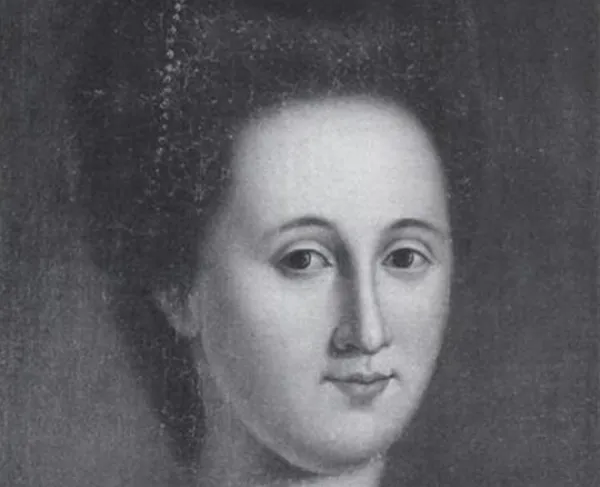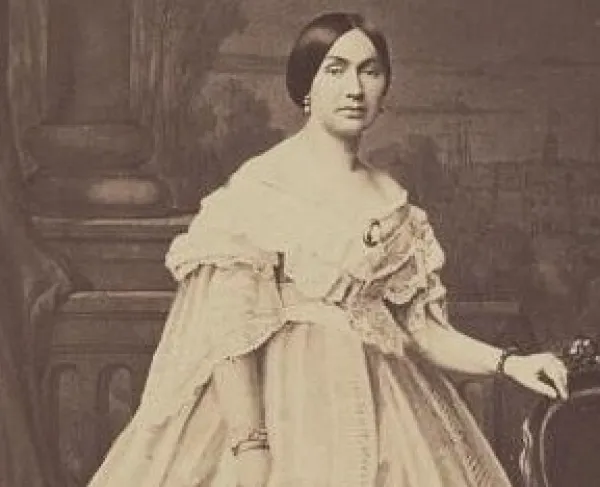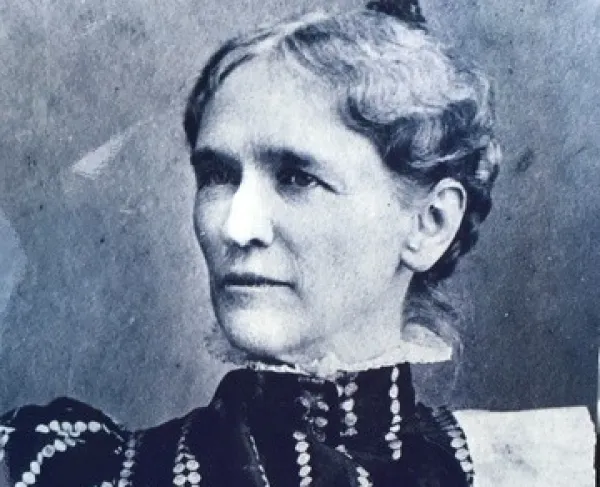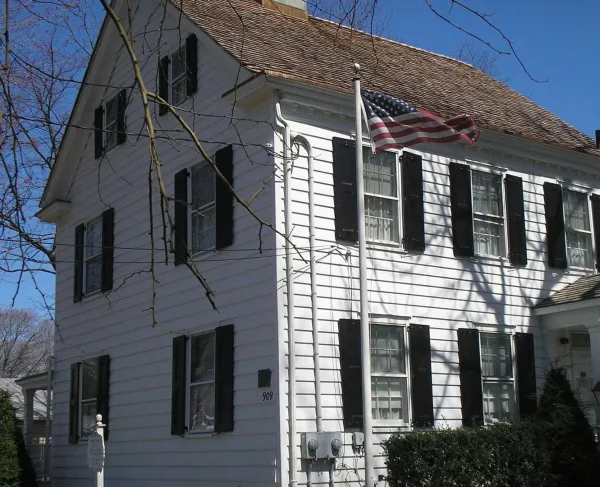Esther de Berdt Reed

The Ladies’ Association of Philadelphia launched with the publication of the “Sentiments of an American Woman” on January 10, 1780, three years after the start of the American Revolution. This broadside asserted that women were equal to men in their patriotism for the new budding country:
"Our ambition is kindled by the same of those heroines of antiquity, who have rendered their sex illustrious, and have proved to the universe, that, if the weakness of our Constitution, if opinion and manners did not forbid us to march to glory by the same paths as the Men, we should at least equal, and sometimes surpass them in our love for the public good."
It continued by then appealing to the women to give up their finery and luxuries and, with the saved money, donate to the Continental Army. The author, known only as “An American Woman,” asserts that “This is the offering of the Ladies.” And offer, they did. The Ladies’ Association raised over $7,000, almost $30,000 in today’s capital, by canvassing Philadelphia. The woman behind this organization and author of this broadside was Esther de Berdt Reed.
Ironically, Reed was born in London, England. Both of her parents were Protestant refugees from Ypres in Belgium. Her nickname as a child was Hette or Hettie. At the age of twenty-three to twenty-four, Reed married Joseph Reed, an American studying law in London. After her father’s death, Reed, her husband, and her widowed mother set out for Philadelphia in October 1780. Joseph Reed, a well-connected lawyer and local political leader, entertained incoming prominent Revolutionary War figures like George Washington and John Adams in the years leading up to the war. During the war, Joseph served as Washington’s secretary and aide-de-camp with John Laurens and Alexander Hamilton.
While Joseph was on the war front, Reed remained in Philadelphia, caring for their six children and raising support for the Revolutionary Cause. The money raised by the Ladies’ Association purchased linen and cloth, which were then used by volunteers to sew clothes for the Army. Initially, Reed wanted to give the money to each soldier directly to spend at their discretion. Washington, worried about soldiers spending money on liquor, encouraged the sewing of clothing instead. To remind the soldiers at the war front of the “offering of the Ladies,” Reed instructed each volunteer to embroider their names into the clothing. By the end of their effort, the Ladies’ Associated had sewn more than 2,000 shirts for soldiers.
Because of her tireless effort, the Daughters of Liberty inducted Reed into their organization. The Daughters of Liberty was an all-female association formed in 1765 to protest the Stamp Act and subsequent Townshend Acts. These women were identified as being an exemplifier help to fight for freedom in the Revolutionary War. Other women associated with this organization were Sarah Bradlee Fulton, Sarah Franklin Bache, and Martha Washington. Historians credited Fulton with encouraging the Boston Tea Party participants to dress as Native Americans and she helped coordinate volunteer nurses during the Battle of Bunker Hill. Bache was the daughter of Benjamin Franklin and assisted with outfitting soldiers in 1780. Washington was the wife of George Washington and was instrumental in caring for soldiers during their Army’s winter encampments.
However, not even a year later, Reed passed away from dysentery. Sarah Franklin Bache took over her position as head of the Ladies’ Association of Philadelphia. Other states, such as Maryland, New Jersey, and Virginia, created associations modeled after Reed’s handiwork. While Reed was not an American-born citizen, she believed in freedom and the American Revolution. She asserted that women could publish political thought, create essential political associations of aid, and be critical contributors to the Revolutionary War.





